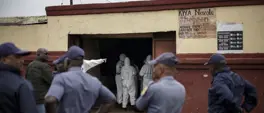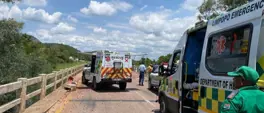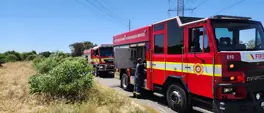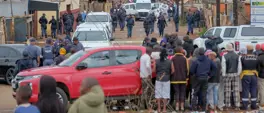How do we prevent informal settlements from being destroyed by floods?
Keely Goodall
17 July 2024 | 12:20People living in informal settlements have been devastated by recent floods in the Western Cape.
Lester Kiewit speaks with Carl Pophaim, Member of the Mayoral Committee for Human Settlements and Moegsien Hendricks, Executive Director at the Development Action Group.
Listen to the interview in the audio below.
Whenever the weather turns sour, informal settlements are the worst affected.
Devestating floods can wash away entire houses leaving the people living in them destitute.
ALSO READ:
WATCH: Crazy viral videos of Western Cape being ravaged by floods
Ways you can support families affected by Western Cape floods
Hendricks says that many people are forced to build in these unsafe areas that are low lying or on riverbanks because they need to be close to job opportunities, clinics or other amenities.
“The opportunities for people to find and access well located land is very limited in our city.”
- Moegsien Hendricks, Executive Director at the Development Action Group
He says that the issue is not around educating people on the risks of the location but rather teaching them how to build in a way that protects them against floods.
“There is a technical solution to the problem of flooding in informal settlements.”
- Moegsien Hendricks, Executive Director at the Development Action Group
Pophaim says that this issue is more nuanced than just people wanting to be close to resources.
He explains that there is a responsibility on political leaders and on residents to manage this and prevent occupation of unsafe areas.
“Informality is here to stay. It is not going anywhere, so how do we as a City implement programmes to make sure it is dignified?”
- Carl Pophaim, MMC for Human Settlements
Scroll up to the audio player to listen to the interview.
Get the whole picture 💡
Take a look at the topic timeline for all related articles.















